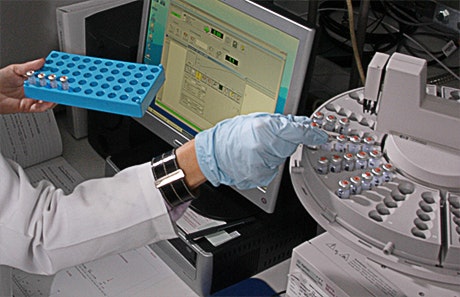2016 has been a tough year for the biotech sector, as drug pricing became a very popular topic among politicians and media outlets, which dubbed many of the industry’s practices as “price gouging”. Controversies around Mylan NV (NASDAQ:MYL) and Valeant Pharmaceuticals Intl Inc (NYSE:VRX) were among the most notable in a series of cases that galvanized the public. However, the past few months have seen many stocks rebound from their February and/or May lows. In this article we’ll take a look into five biotech ETFs and the institutional support they count, which could be seen as a proxy of how bullish hedge funds are regarding a continuation in the sector’s rebound over the coming months.
At Insider Monkey, we track more than 750 hedge funds, whose 13F filings we analyze as part of our small-cap strategy. Our research has shown that imitating a portfolio that includes the 15 most popular small-cap stocks among hedge funds can outperform the market by as much as 95 basis points per month on average (see more details).

Let’s start with the Direxion Daily S&P Biotech Bull 3X Shares (NYSEARCA:LABU) ETF, which provides daily 3-times leveraged exposure to the S&P Biotechnology Select Industry Index (INDEXSP:SPSIBI), and is rebalanced after every trading day. This makes it more convenient for short-term investors. While the ETFs year-to-date performance has been very poor, losing more than 58% of its value, its returns over the past four months have been quite strong, as the ETF has gained 6.9% since June 27.
Only a few funds among those that we track were long Direxion Daily S&P Biotech Bull 3X Shares (NYSEARCA:LABU) at the end of the second quarter. The only noteworthy position among them was that of Ken Griffin’s Citadel Advisors, which held 23,781 shares of the ETF valued at $671,000 on June 30.
Next up is the ALPS Medical Breakthroughs ETF (NYSEARCA:SBIO), which tracks the performance of the Poliwogg Medical Breakthroughs Index (INDEXNYSEGIS:PMBI), which comprises small-cap ($200 million-to-$5 billion in market cap), U.S.-traded biotech companies that have at least one drug in Phase II or Phase III FDA clinical trials. Same as its peer above, the ETF had a troubled year, losing more than 25% of its value. However, even though it has slipped by 5.16% over the past month, its returns since June 27 also stand at 6.9%.
As of the end of the second quarter, none of the funds that track held a significant position in the ALPS Medical Breakthroughs ETF (NYSEARCA:SBIO). In fact, institutional support was not very large in general, with less than 30 13F-filing firms long the ETF on June 30.
We’ll check out three other biotech ETFs that have enjoyed a strong second-half of the year on the next page.
Moving on to more popular biotech ETFs, we’ve got the ProShares Ultra Nasdaq Biotechnology ETF (NASDAQ:BIB), which was held by two of the funds in our database at the end of the second quarter. Once again, Citadel Advisors was included in this group, owning 33,894 shares of it valued at $1.3 billion on June 30. The other bull was Gavin Saitowitz and Cisco J. Del Valle’s Springbok Capital Management, which held 1,055 shares.
The ProShares Ultra Nasdaq Biotechnology ETF (NASDAQ:BIB) seeks to replicate 2-times the daily performance of the Nasdaq Biotechnology Index iShares NASDAQ Biotechnology Index (ETF) (NASDAQ:IBB), which in turn tracks mostly large-cap, Nasdaq-traded biotech and pharma companies. The ETF has plummeted more than 41% year-to-date, but has posted gains of 13.62% since June 27.
Second-to-last in this list is the BioShares Biotechnology Products Fund (NASDAQ:BBP) ETF, which has managed to lose just 1.2% year-to-date, in spite of a very rocky start to the year. In fact, since mid-February, the ETF has gained more than 35%. Having said that, its performance in the last month has been relatively poor, though it still maintains gains of 18.25% since June 27. The ETF tracks the performance of the BioShares Biotechnology Products Index, which includes biotech companies in a “product stage”.
BioShares Biotechnology Products Fund (NASDAQ:BBP) was not particularly popular among institutional investors either, being held by less than 15 13F-filing firms at the end of June. Among the funds that we track, only Citadel had a long position in it earlier this year, comprised of 8,756 shares on March 31, but it sold out of it between April and June.
Finally, there’s the SPDR S&P Biotech (ETF) (NYSEARCA:XBI), which 11 hedge funds in our database were long as of June 30. That group included Samuel Isaly’s OrbiMed Advisors, which held 745,300 shares of the ETF worth $40.3 million on June 30, and Steve Cohen’s Point72 Asset Management, with 191,000 shares.
The SPDR S&P Biotech (ETF) (NYSEARCA:XBI), which tracks the performance of the S&P Biotechnology Select Industry Index (INDEXSP:SPSIBI), and an equal-weighted index of US-traded biotech companies, has lost 14.85% this year, and has also struggled this month, as the industry has taken another downturn. However, the ETF is still up by more than 15% since June 27.
Disclosure: Javier Hasse holds no interest in any of the securities or entities mentioned in this article.